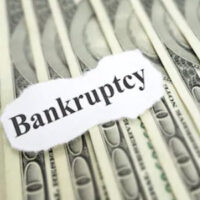

If you’ve been sued, there’s a good chance you may have lost, and a judgment could be entered against you. If a judgment is entered against you, how long is it good for? You could file bankruptcy and get rid of the judgment in most cases, but is it a better idea just to “wait it out” until the judgment is no longer valid and enforceable?
The Length of a Judgment
A judgment is good, and can be enforced, for up to 20 years. That seems like a long time, and it is. A judgment is good for 10 years and Florida allows a creditor to “renew” a judgment before the expiration of the 10 years for an additional 10 years, thus giving a judgment almost unending life.
That’s a long time to be chased down for a judgment.
What Happens in Enforcement?
During the time the judgment is enforceable, the creditor can garnish your wages, or try to take your property. You may have exemptions that protect your property – much of the same exemptions that apply in bankruptcy also protect your property from being taken by a creditor to pay a judgment.
But because the judgment is enforceable for so long, your conditions may change, and although you have no non-exempt property today, there’s no telling what you will or will not have tomorrow. The last thing you want is to come into some money, or some success, only to have an ancient judgment come back to haunt you later on.
Liens on Property
Judgments also can result in liens on your property. The judgment will be recorded in the public records, and any title or lien search will reveal its existence.
If you are a homeowner with homestead property, the judgment won’t result in a foreclosure (other than a foreclosure judgment, of course). However, when you sell your home, the judgment will have to be paid from the proceeds of the sale.
That cuts into what you would get from the sale of your home, and of course, the judgment creditor will want to be paid 100% of what it is owed from the proceeds of the sale.
The lien is good for 10 years, but the creditor can renew the judgment before it expires for another 10 years, meaning the lien will survive for a maximum of 20 years.
The good news is that because of Florida’s homestead protections, a judgment lien cannot attach to homestead property. However, if property stopped being homestead—say, you opted to move somewhere else and keep the home to rent out, or for investment purposes—the lien could then attach to your property.
Bankruptcy avoids all of this, and will, in most cases, wipe out the judgment, and immediately stop any enforcement of it or collection on it. Call the West Palm Beach bankruptcy lawyers at Kelley Kaplan & Eller at 561-264-6850 today.